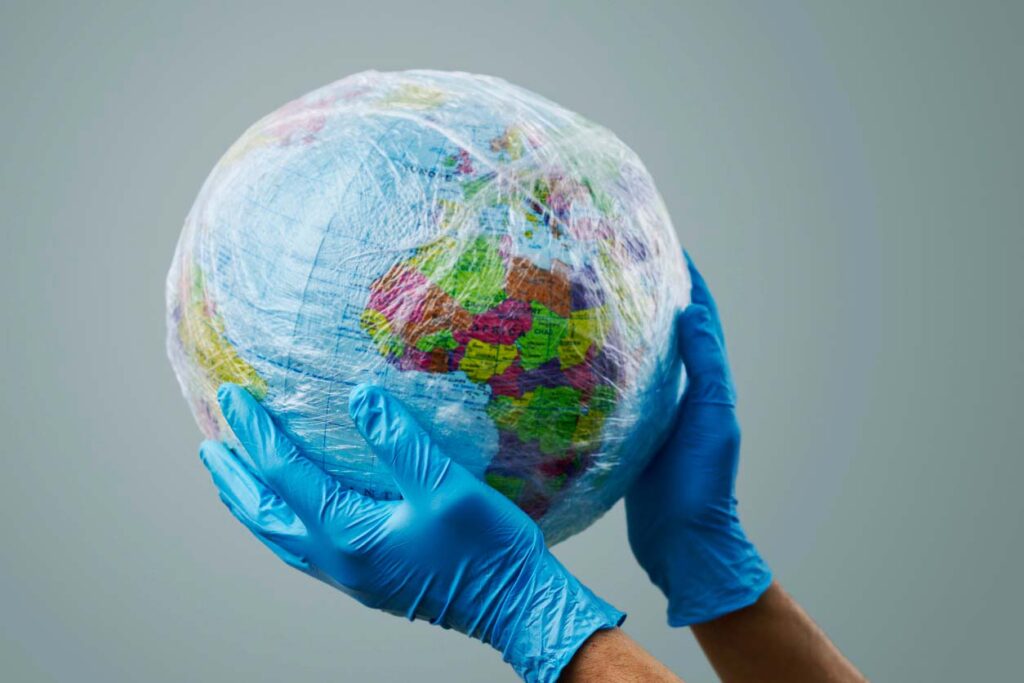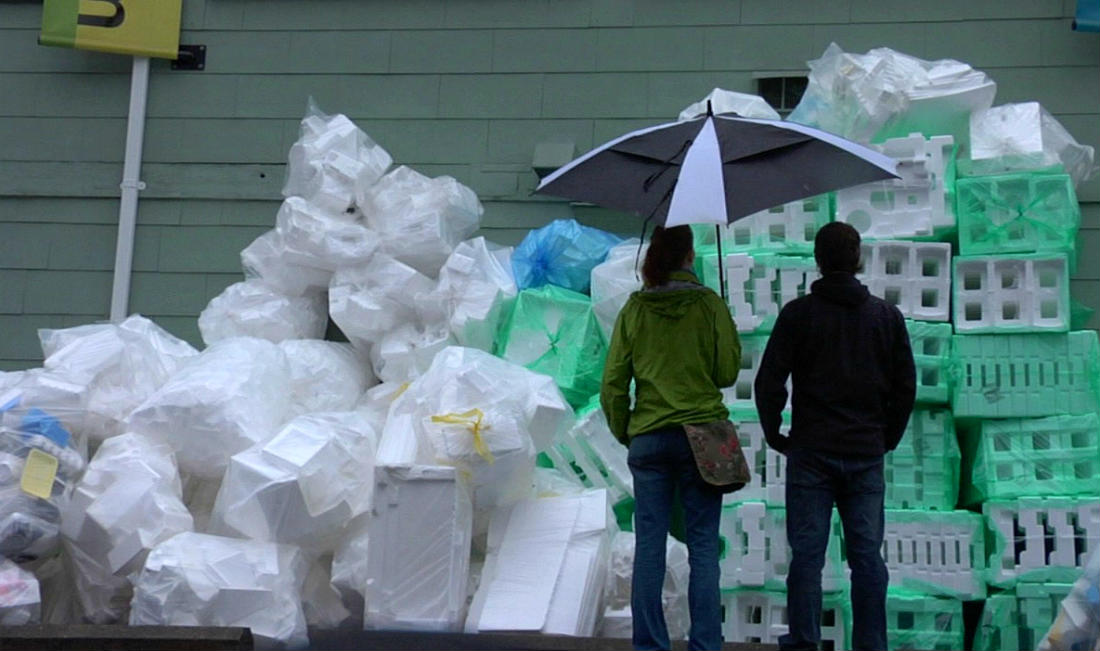Growing concern for the environment and sustainability has led to the search for efficient solutions for the disposal and recycling of plastic materials. Among these materials, expanded polystyrene, better known as Isopor®, stands out for its widespread use and the challenges it presents in terms of recycling.

In this context, the partnership between Plastivida, Instituto Tamboré, Cooperativa Avemare and the Institute of Socio-Environmental Projects and Research (Ipesa) is presented as a fundamental initiative to promote recycling and collection of Styrofoam in the city of Santana de Parnaíba, São Paulo.
The Context of the Partnership and Its Objectives
The partnership was formalized in a ceremony attended by several authorities and representatives of civil society, including the mayor of Santana de Parnaíba, Benedito Fernandes, and secretaries from several municipal departments. This mutual cooperation agreement aims to integrate the different actors involved in the process of collecting and recycling Styrofoam, promoting environmental awareness, worker training and social inclusion.
Avemare Cooperative, one of the main entities involved, will be responsible for collecting Styrofoam from the 40,000 residents of Santana de Parnaíba, including residential condominiums, companies, stores and schools. Proeco, another partner in the project, will be in charge of the recycling process, transforming the collected material into new products that can be reintroduced into the production chain.
The Tamboré Institute and Plastivida will focus on creating communication, awareness and environmental education campaigns, while Ipesa will be responsible for training Avemare members.
Challenges and Benefits of Recycling and Collecting Styrofoam
Isopor® is a material widely used in packaging, thermal insulation and product protection during transportation. However, due to its lightweight and bulky composition, recycling and collection of Styrofoam presents significant logistical challenges. The collection and transportation of this material can be costly and complex, requiring the implementation of specific strategies to make them viable and sustainable.
Recycling Styrofoam brings numerous benefits to the environment and society. When recycled properly, Styrofoam can be transformed into a variety of products, such as moldings, insulation panels, and even components for the automotive industry.
Furthermore, recycling helps reduce the volume of waste in landfills, reduces environmental pollution and saves natural resources, as it avoids the need to produce more virgin plastic. The Styrofoam collection process, when well structured, ensures that this material is not disposed of inappropriately, enhancing its benefits through recycling.
Environmental Awareness and the Role of Educational Campaigns
One of the pillars of the partnership is environmental awareness. The success of any recycling initiative depends on community engagement and the population’s understanding of the importance of correctly disposing of Isopor®.
The educational campaigns planned by the Tamboré Institute and Plastivida aim to inform residents of Santana de Parnaíba about the environmental impacts of improper disposal of Isopor® and how they can contribute to recycling. An essential part of these campaigns is to educate the public on how to properly collect Styrofoam, ensuring that the material is clean and ready for the recycling process.
These campaigns will be essential to achieve a change in behavior regarding the consumption and disposal of plastic products. Through awareness-raising actions, lectures in schools, dissemination on social media and informative materials, the aim is to increase the rate of adherence to the selective collection of Isopor®, promoting a culture of environmental responsibility.
Styrofoam collection, when done correctly and integrated with community education, can transform the way we deal with plastic waste, increasing recycling efficiency and reducing environmental impact.
Training and Social Inclusion of Cooperative Members
Another essential aspect of the partnership is the training of Avemare members, who are responsible for collecting Styrofoam in the region. The cooperative currently has 69 members, and the goal is to expand this number to 150 in the next two years. In addition to increasing the amount of recycled materials, this expansion will have a positive impact on the income of members, with a projected increase of 25% in average monthly income.
The training offered by Ipesa will be aimed at improving the technical and managerial skills of cooperative members, preparing them to deal with the challenges of collecting and recycling Styrofoam. In addition, the social inclusion promoted by this initiative contributes to the generation of jobs and income, directly benefiting the families involved and strengthening the local economy. In addition to being a sustainable activity, Styrofoam collection also serves as an important vector for social development, generating opportunities for those involved in the process.
The Long-Term Impact and Expansion of the Rethink Project
The partnership is part of Plastivida's Rethink Project, an initiative that aims to rethink the way we deal with plastic, from its production to its disposal. Formed by associated companies such as Basf, Dow, Innova, Meiwa, Proeco and Termotecnica, the project seeks to promote the circular economy and sustainability through innovation and collaboration between different sectors of society. Styrofoam collection is one of the central areas of activity of this project, which seeks to integrate the best practices in recycling and plastic waste management.
The long-term impact of this partnership in Santana de Parnaíba goes beyond recycling Isopor®. It serves as a model for other cities and regions that face similar challenges in terms of plastic waste management. Replicating this initiative in other locations could significantly contribute to reducing the environmental impact caused by plastic and advancing recycling practices in Brazil. If successful, collecting Styrofoam could be the key to inspiring other cities to adopt similar measures, expanding the benefits of recycling nationwide.
The partnership between Plastivida, Instituto Tamboré, Cooperativa Avemare and Ipesa represents an important step towards more sustainable and responsible management of plastic waste, particularly Isopor®. By joining forces to collect Styrofoam, recycle it, raise awareness and provide training, this initiative has the potential to generate significant environmental, social and economic benefits for the community of Santana de Parnaíba and the environment as a whole. The success of this partnership can serve as inspiration for other cities and organizations, contributing to the construction of a more sustainable future.
Styrofoam collection, although challenging, is a powerful tool in the fight against plastic waste and in promoting more sustainable practices. Through initiatives like this, we can advance in protecting the environment and creating a more conscious society committed to sustainability.
Source: Plastivida




We are located in Guarulhos SP and we have a good amount of Styrofoam and we wanted a destination for this material. Could you help us? I await your contact.
Hello, do you have Styrofoam for donation? If you can contact me, I have WhatsApp (011) 99525-3809. Thank you.
I'll give you all the Styrofoam I have urgently!!! Anyone who wants to take EVERYTHING away, feel free!!! 013 33293560 / 013 991614927